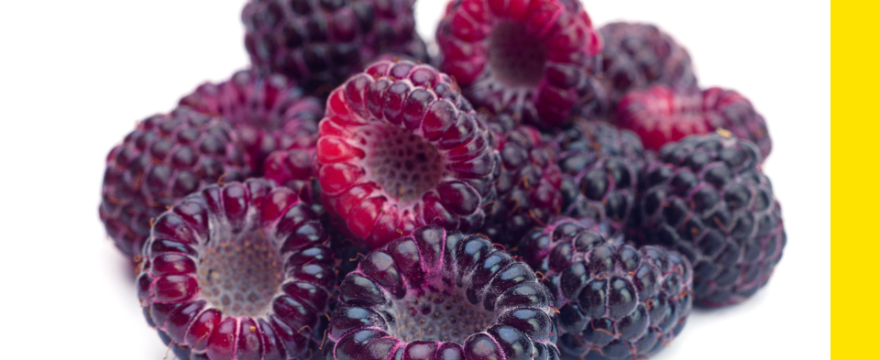Cancer is a complex disease, but research shows that many factors influencing its development and recovery lie within our control. One often overlooked yet powerful ally in cancer prevention and recovery is the microbiome—the trillions of microbes that live within and on our bodies. These tiny organisms outnumber our human cells by 10 to 1 and make up 90% of the cells in our bodies. Supporting their health through mindful lifestyle choices can help bolster our immune system, improve metabolic function, and lower cancer risk.
In this post, we’ll explore the connections between your microbiome, mitochondrial health, and cancer, and how you can take actionable steps to protect yourself using natural strategies.
Understanding the Oncobiome: Microbes and Cancer Risk
The term oncobiome refers to the relationship between our microbiome and cancer. Research reveals that disruptions in microbial balance, often caused by modern lifestyles, can significantly impact cancer risk. For instance:
- Oral Microbiome and Dental Health: Many cancers originate from imbalances in the mouth’s microbiome. Poor dental work or infections can disrupt these microbes, leading to inflammation that may contribute to cancer formation.
- H. pylori and Stomach Cancer: The bacterium Helicobacter pylori is known to cause stomach ulcers and has been linked to lymphomas and gastrointestinal cancers, including esophageal cancer.
- Gut Microbiome and Immunity: A healthy gut microbiome plays a crucial role in maintaining a robust immune system, which is vital for identifying and destroying cancerous cells early.
The Overuse of Antibiotics
While antibiotics are lifesaving in some situations, their overuse can have severe consequences for your microbiome and overall health. Antibiotics:
- Cause oxidative damage to DNA.
- Harm mitochondria—the energy powerhouses of your cells.
- Disrupt microbial balance, making it harder for your body to fight infections and chronic inflammation.
Fortunately, nature provides alternatives with antimicrobial properties that are less damaging to the microbiome.
Natural Antibiotic Alternatives
Herbs and foods with natural antibiotic properties can help protect your microbiome while supporting your immune system. Some of the best include:
- Garlic: Contains allicin, which has powerful antibacterial and antifungal properties.
- Horseradish: Known for its ability to clear respiratory infections and support detoxification.
- Oregano: Packed with carvacrol and thymol, compounds that fight harmful bacteria.
Incorporating these into your diet not only aids in microbial balance but also offers antioxidant and anti-inflammatory benefits.
Supporting Mitochondrial Health
Mitochondria drive metabolism and energy production in your cells. When mitochondria are damaged, cells become less efficient and more prone to cancerous changes. Protecting and nourishing your mitochondria can significantly lower your cancer risk.
Strategies to Support Mitochondria:
- Reduce Oxidative Stress: Avoid environmental toxins, eat antioxidant-rich foods, and minimize processed food consumption.
- Support Microbial Health: A balanced microbiome reduces inflammation and promotes mitochondrial efficiency.
- Incorporate Probiotics and Prebiotics: These help restore microbial balance and support digestive health.
Probiotics and Prebiotics: The Dynamic Duo
Probiotics and prebiotics are essential for maintaining a healthy microbiome. They not only aid in digestion but also strengthen the immune system and reduce inflammation—key factors in cancer prevention.
Probiotics:
Probiotics are live microorganisms found in fermented and cultured foods. Examples include:
- Yogurt
- Sauerkraut
- Kimchi
- Kombucha
For best results, take probiotics before bed when your digestive system is less active, allowing the microbes to establish themselves.
Prebiotics:
Prebiotics are the fiber-rich foods that feed your beneficial gut bacteria. To maximize their benefits, consume them in their raw state, as cooking can reduce their prebiotic content by 25% to 75%.
Some excellent sources include:
- Leeks
- Jerusalem artichokes
- Asparagus
- Radishes
- Black Raspberries: High in ellagic acid, which has cancer-fighting properties.
- Umeboshi Vinegar: A Japanese fermented product that supports gut health.
Managing Acid Reflux Naturally
Chronic acid reflux, or GERD, can increase the risk of esophageal cancer. Conventional treatments often rely on medications that further disrupt the microbiome. Instead, consider these natural remedies:
- Probiotics: Restore balance to the gut and reduce reflux symptoms.
- Dietary Adjustments: Avoid trigger foods and incorporate alkaline-forming foods.
- Herbal Remedies: Ginger, chamomile, and licorice root can soothe the digestive tract.
The Role of Diet in Cancer Prevention
Diet is one of the most powerful tools for cancer prevention. A microbiome-friendly, nutrient-rich diet supports immune function and reduces inflammation.
Key Dietary Tips:
- Focus on Whole, Unprocessed Foods: Eliminate refined sugars, trans fats, and artificial additives.
- Eat the Rainbow: Include a variety of colorful fruits and vegetables for their phytonutrients and antioxidants.
- Incorporate Fermented Foods: Boost your probiotic intake with foods like miso, kefir, and pickles.
- Include Cancer-Fighting Foods: Black raspberries, turmeric, and green tea are particularly potent.
Taking Small Steps Toward Prevention
Preventing and recovering from cancer doesn’t require an overnight overhaul. Start with simple changes like adding a serving of fermented vegetables to your meals, swapping out processed snacks for raw vegetables, or brewing a daily cup of green tea. Over time, these small actions will build a foundation of health and resilience.
Your body has incredible self-healing potential, and supporting your microbiome and mitochondria is a powerful way to tap into that. By embracing natural remedies, nourishing foods, and balanced living, you can reduce your risk of cancer and support your recovery journey.
Remember, every meal, every choice, and every moment of self-care contributes to your well-being. You’ve got this!

Leave a Reply